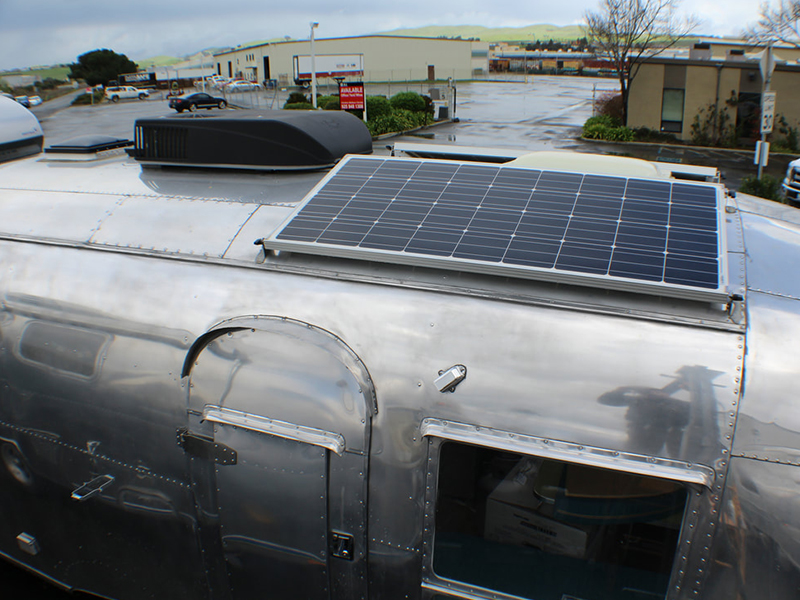Solar Energy Equipment Supplier - Use the Sun to Power up your Adventures
Quality solar systems for RVs are not inexpensive, but they offer great, long-lasting value. RV solar power will save you money at the fuel pump, as well as wear and tear and maintenance of gasoline generators. Solar systems are also exceptionally quiet when they’re installed properly. Plus, solar systems for RV’s are very low-maintenance – and, of course, they help to preserve our beautiful Earth.
Now, let’s review the components that make up a solar power system for a recreational vehicle.
SPOILER: The most common RV solar systems run about 300 watts of solar panel, about six 6-volt deep-cycle batteries, and an 800 to 1500-watt inverter.
RV Solar Panels
An “RV solar power system” means different things depending on who you ask. A small 10-watt system might be fine for someone who just wants to keep battery power available during a few annual trips.
The number and power ratings of solar panels you’ll need for your RV will depend on the power you consume. For instance, if you plan on only running a TV or charging your cell phone, you’ll probably be good with enough solar panels to generate 90 – 140 watts or so.
However, if you plan on operating a coffee maker, vacuum, microwave, or another similar energy consumer, you could use 300 – 400 watts. And if you live and travel in your RV full-time, you might do best with a system that generates and stores at least 900 watts. It’s all relevant to your needs/wants.
Batteries for RV Solar Systems
A battery system with a 225 amp-hour capacity is considered a good minimum rating for a small RV. If you have larger power needs, it’s smart to consider the amount of space you have available for the batteries. Most house RVs are good with about 400 – 700 amp-hours of battery capacity.
Many RVers find that space is the biggest challenge they face when planning their battery systems. Often they need to reconsider what they can do to cut back on their battery power needs because they lack the space to accommodate the battery system they would choose first.
RV Solar Inverters
If you only plan on charging notebooks and phones in your RV, then you can likely get by with a 75-watt inverter. If you plan on running a microwave, you’re going to need an inverter in the 800 – 1200 watt range. You can expect to pay from $700 – $1200 on average for that type of system.
Contact Avalon RV in Pacheco, CA
Avalon RV caters to the needs of RVers in and around Pacheco, CA, as we have since 2008. Our meticulous craftsmen specialize in solar system installations on vintage Airstreams, but they enjoy working on all makes and models. Please don’t hesitate to Contact Us Today with your questions and to request your new RV solar system installation!
Professional RV Solar Installation near Benicia, CA.
Compare RV Solar Dealers in Northern California.
Looking for licensed RV solar installation & maintenance in the Bay Area?
Find affordable and good RV solar installers near me in Sacramento.

Pacheco, California
Nearby Oakland, and closer to Martinez (birthplace of the martini), Pacheco, CA, is home to nearly 5,000 residents in beautiful Contra Costa County. A small, quiet town, Pacheco is widely regarded as one of the finest places to live in the Golden State. It’s renowned as an affluent, law-abiding, largely liberal city.
If you’re looking for fun and action in Pacheco, consider a visit to the California Grand. That 24-hour working casino is located at 5988 Pacheco Blvd. It’s been voted the Best Casino in the East Bay for the past 7 years, and it’s loaded with all the extensive casino amenities and attractions you would expect.
The weather in Pacheco is typical of the Bay Area. Temperatures in January average 48.3 F, and 70.8 F in July. While pollution in Pacheco is a bit worse than the national average, the air quality index is about 20% better. Count on about 265 days a year of sunny weather, which is superb for RVers!

